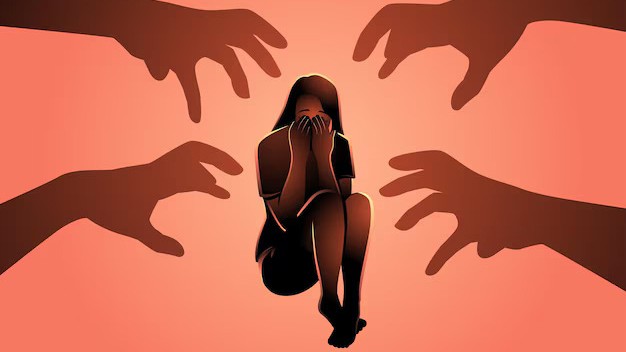The rising number of crimes against women in India has shaken the nation, bringing intense public scrutiny and calls for justice. One such shocking incident is the Badlapur case, where two four-year-old girls were sexually assaulted by a school sweeper, highlighting the vulnerability of children in what should be safe spaces. This incident highlights the need for thorough background checks before school staff is hired, to ensure that no paedophiles or sexual offenders are on the loose in schools. The case has sparked widespread anger, similar to the outcry following the rape and murder of a trainee doctor in Kolkata.
One of the major reasons that these crimes are rising is lack of strict actions against the criminals. These discussions are taking place all over the internet and The Free Press Journal engaged with the youth, asking them whether castration should be considered as a punishment for rapists.
RJ and actor Malishka stresses that if society cannot regulate itself, the law must take stronger measures to protect women. She expresses, “If we need fear to discipline us and cannot as a society regulate our thoughts and actions, law must do everything it can to protect the women of the country. If that remedies it, then great, and if not, then make the punishment harsher.”
She also states that castration might be lenient for such heinous crimes. “I want to be humane and kind but if the punishment must befit the crime then castration still feels like too little for this kind of destruction of a woman’s body and soul,” she reveals.
Echoing similar sentiments is 22-year-old Nandni Mandal, who expresses strong support for castration, arguing that in absence of severe consequences, perpetrators act without fear. She says, “I feel the criminals of the rape cases should be castrated. When there are no strong consequences, perpetrators feel they can get away with it. Castration could be a viable option to consider, as it would serve as a strong deterrent and ensure that those who commit such heinous crimes pay for their actions and might make others think twice before committing similar offences.”
Others, like MBA student Ritika Bhowmick, believe that a death sentence is not sufficient for these criminals. She mentions, “I think not just castration but they should be treated the same way they treated the victim. Death sentence is not the answer, the fear of being alive in that pain should haunt them. So the next person who thinks of committing this crime will think twice before doing it.”
Model Hanish Sugandh shares a similar view for these crimes. “India should really have some strict rules for molestation, sexual assault,” he narrates.
Raksha Bandhan: How Different Indian States Celebrate This Festival In Unique Ways
While many call for harsher punishments, others want to address the root causes of such crimes. Joe Sinha, a content creator and an activist points out that castration, though potentially effective, only addresses the symptom, not the cause. He reveals that addressing the root cause of the problem, the patriarchal society we live in is crucial to create lasting change.
He feels that for centuries, women have been subjugated through so-called religious texts, and this must be changed through a gradual process. “Although various solutions have been proposed, none have effectively reduced the rate of violence against women. While some may view castration as a genuine solution, others argue it is morally reprehensible and pragmatically ineffective. Ultimately, the root of the problem lies in the patriarchal structure that is ingrained in us from birth, and this must be transformed over generations. Only then can we truly protect women and create a safer society,” he says.
Content analyst Divya Rai also echoes this sentiment, highlighting how societal inequality and the belief in male dominance contribute to these crimes. “Rapes are happening because some men in the society thinks that they have a control over women. It seems that the criminals wanted to show the victim they have control over her. The day when these men start thinking like women are equal and they do not need control by men, this will be the day when crimes will start dropping down,” she feels.
The debate ultimately centres on two perspectives: whether strict punishments can reduce future crimes, or whether addressing the underlying societal issues is the key to long-term change. As citizens, it’s important to keep demanding justice and advocating for a safer society, ensuring that every individual, regardless of gender, feels safe in this nation. The responsibility lies with all of us to raise our voices and bring the necessary change.
Who is a paedophile?
A paedophile is an individual who is sexually attracted to children. This attraction is considered a psychiatric disorder, known as paedophilic disorder, when it leads to distress, interpersonal difficulties, or behaviours that could harm a child. Paedophilia is illegal in many countries and is widely condemned due to the severe psychological and physical harm it can cause to children.

